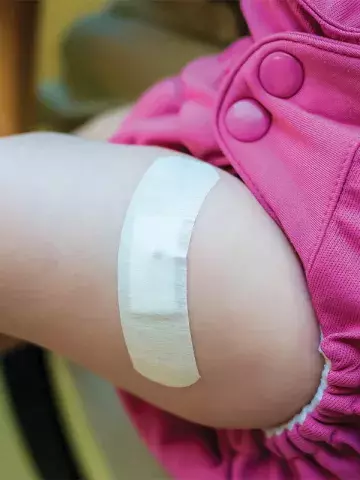Nirsevimab highly effective in preventing RSV hospitalisations in infants, finds study
By Melanie Hinze
New Western Australian research has found the long-acting monoclonal antibody nirsevimab to be highly effective in preventing hospitalisations from respiratory syncytial virus (RSV) acute respiratory infection (ARI) in infants and young children. The findings, published in the Journal of Infection, represent Australia’s first real-world data evaluating nirsevimab across a full RSV season.
In 2023, Australia approved nirsevimab for RSV ARI prevention. Subsequently, in April 2024, Western Australia implemented the first state-wide nirsevimab program for all infants entering their first RSV season and children at high risk of severe RSV infection entering their second RSV season.
The REVIVE (REspiratory syncytial Virus Immunisation program – eValuating Effectiveness & impact) study was a multicentre, prospective observational case-control study enrolling children at Perth Children’s Hospital, Joondalup Health Campus and Fiona Stanley Hospital between April and October 2024.
Children eligible for nirsevimab, admitted to hospital with an ARI and tested for respiratory viruses were included. Cases were those testing RSV positive (n=184) and controls were a select number at each site and week but RSV-test negative (n=100).
Immunisation status was verified via the Australian Immunisation Register and hospital records, and effectiveness was calculated using conditional logistic regression, adjusting for age, sex, Aboriginality, prematurity, medical risk factors, hospital site and time of illness.
The researchers reported that the overall effectiveness of nirsevimab in preventing RSV-associated hospitalisation was 88.2%. Coverage of nirsevimab in RSV cases was 22.8% and in controls it was 60%. Breakthrough RSV infection occurred in 22.8% of cases, but no significant differences in severity were seen compared with unimmunised children.
In addition, the researchers found that vaccine’s protection appeared to be maintained across both the first 90 days and beyond 90 days post immunisation.
Dr Ushma Wadia, Clinical Research Fellow at the Wesfarmers Centre of Vaccines and Infectious Diseases, based at The Kids Research Institute Australia, Perth, said, ‘These study findings were the first in the southern hemisphere and support the real-world effectiveness of nirsevimab as a seasonal RSV prevention tool in a public health setting.’
She noted that long-term respiratory outcomes associated with early RSV infection were recurrent wheezing and childhood asthma. ‘Therefore, prevention of early RSV infection is expected to decrease these long-term respiratory outcomes.’
Dr Wadia said that nirsevimab was safe and highly effective against RSV-associated hospitalisation in infants. She recommended that primary care providers considered its benefits in preventing RSV hospitalisations and stayed informed about its availability and guidelines for administration.
The success of Western Australia’s nirsevimab program also contributed to the rollout of a national, $174.5 million RSV immunisation program now underway for all pregnant women and newborn babies that hopes to keep 10,000 Australian babies out of hospital each year.


